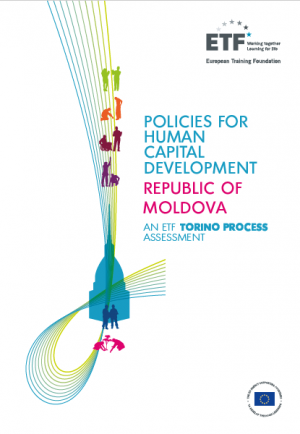The ETF Torino Process assessment provides an external, forward-looking analysis of the country's human capital development (HCD) issues and VET policy responses from a lifelong learning perspective. It is based on evidence provided in the Moldova Torino Process report compiled in 2019 using a standardised questionnaire (National Reporting Framework – NRF) and additional information sources, where relevant.
The assessment process included an extensive phase of desk research on the basis of responses to the NRF, and the preparation of an issues paper with an overview of themes to be discussed in the current report, which were then finalised in consultation with the country and thematic teams responsible for Moldova at the ETF.
At the time of this assessment, the policy activities across the public sector in Moldova were guided by the strategic framework the National Development Strategy (NDS) 2020. The NDS was adopted in 2012 and aligned with the EU financial cycle 2014–2020 for the technical purpose of benefiting from EU support, and the strategic goal of 'changing the paradigm of economic development' from one based on a model of growth relying on remittances and consumption, to one built on attracting investment and developing export-oriented industries[1] NDS 2020, p.5ff.
.
To that end, the strategy defines eight priorities for addressing the most pressing problems. The first concerns the development of human capital in terms of aligning the education system to the requirements of the labour market in order to enhance labour productivity and increase employment.
In the area of HCD through VET, the medium- and long-term objectives include restructuring and optimising the VET system, increasing the relevance of VET provision, establishing a national quality assurance agency, enhancing the efficiency and quality of VET, and making VET more attractive and affordable, as well as providing quality-assured qualifications and tools for the recognition of diplomas and the validation of non-formal and informal learning, which would support mobility within Europe.
